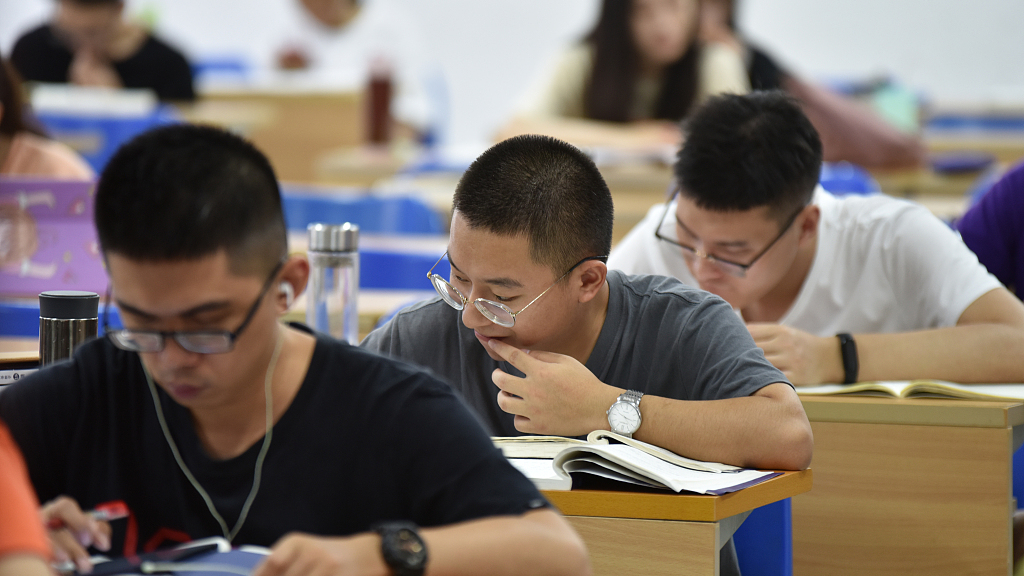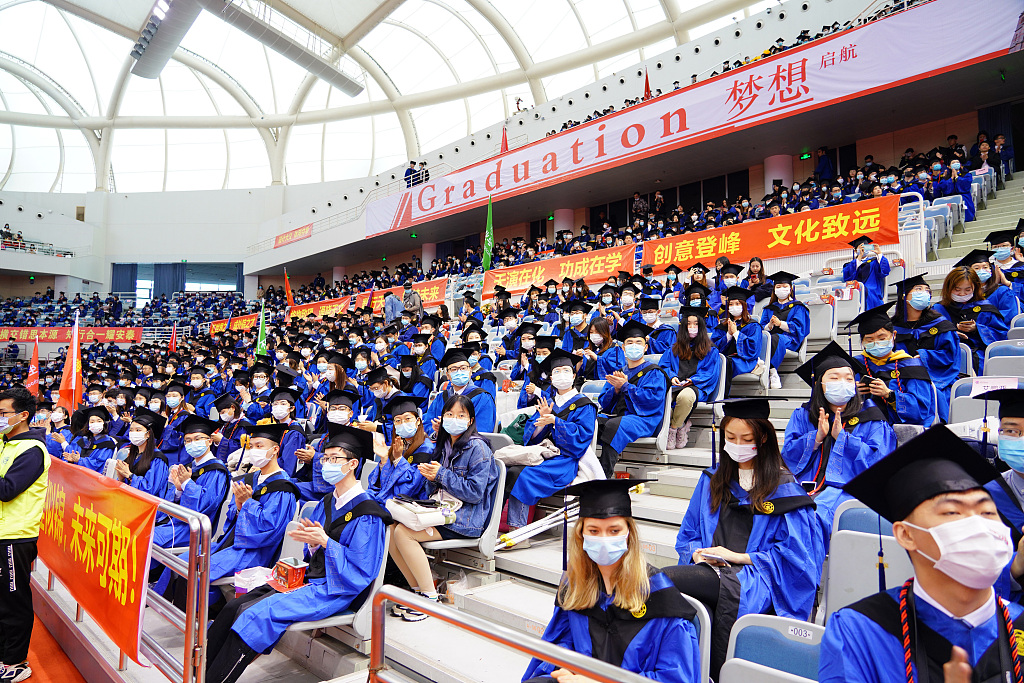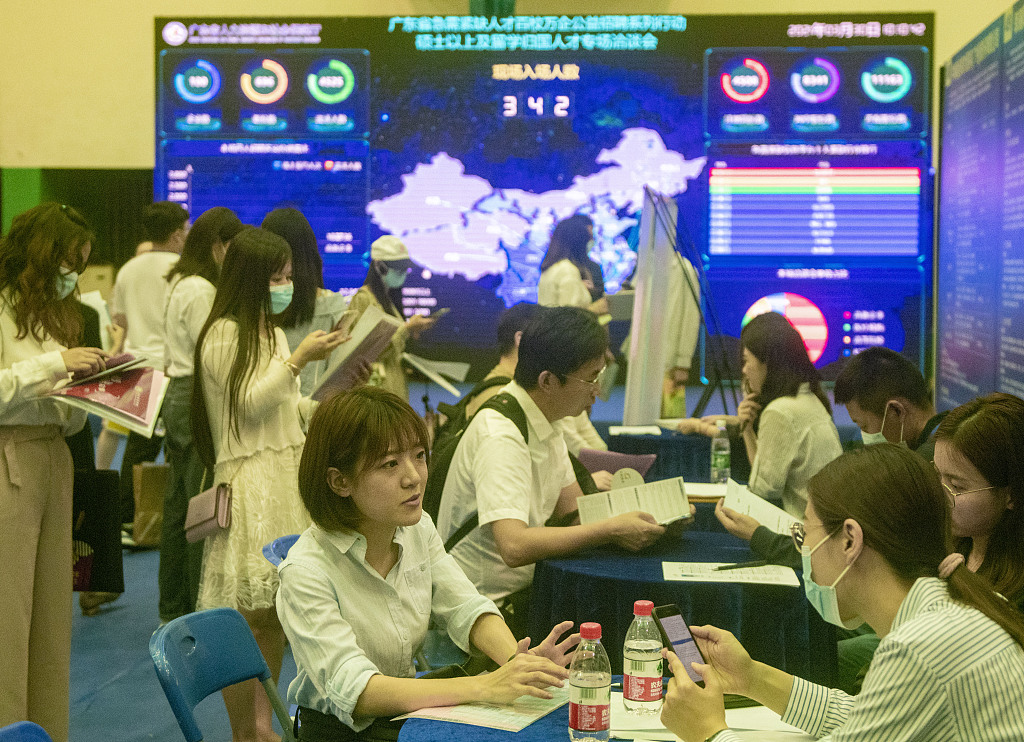
Students read books in a classroom of Hainan University in Haikou City, south China's Hainan Province, October 6, 2020. /CFP
Students read books in a classroom of Hainan University in Haikou City, south China's Hainan Province, October 6, 2020. /CFP
"People used to believe that a person's mental health was positively correlated with his/her socioeconomic status, which means people with higher income, higher education, more stable jobs and better professional reputation will have better mental health. However, international studies in the past two or three years have revealed that nearly 40 percent of Ph.D. students suffer from anxiety, depression and other psychological problems," Chen Zhiyan, a professor of the Institute of Psychology in Chinese Academy of Sciences said.
Chen and her team in 2019 studied the mental health of graduate students, including Ph.D. students in the University of Chinese Academy of Sciences, through clinically validated questionnaires, such as The Patient Health Questionnaire 9-item depression scale (PHQ-9) and 7-item Generalized Anxiety Disorder scale (GAD-7).
The result of the research was included in the Report on the Development of Chinese National Mental Health (2019-2020), which was published in March this year.
Her research revealed that about 35 percent graduate students showed depression and 60 percent showed anxiety. Among graduate students, 34.7 percent master degree candidates showed moderate to severe depression and 12.1 percent showed severe depression. Yet, doctorate candidates showed higher percentages of depression, with 36.6 percent experienced moderate to severe anxiety depression and 12.9 percent experienced severe depression.

Graduation ceremony for postgraduate students at Shanghai Jiaotong University in Shanghai, September 30, 2020. /CFP
Graduation ceremony for postgraduate students at Shanghai Jiaotong University in Shanghai, September 30, 2020. /CFP
The researchers also found variation by gender. About 35.9 percent of female respondents reported experiencing depression, compared with 35.2 percent of male participants.
"Around the world, it's very common that females' degree of depression and anxiety is higher than that of male as women are more sensitive in feeling people's emotions," Chen said.
In March 2018, Science, a world-renowned academic journal published a paper that surveyed 2,279 Ph.D. and master's students in 234 institutions across 26 countries, revealed that 41 percent of respondents showed moderate to severe anxiety and 39 percent moderate to severe depression.
Experts say reasons behind the high degree of depression and anxiety among graduate students vary, and include studying pressure, blurry career prospects, uncertainty about the future and interpersonal relationships.
Unlike undergraduates who can get good grades by studying hard, masters and doctorate programs usually require creativity and/or laboratory experiments, which trigger more mental stress on graduate students.
Besides, there's also an added layer of fear and uncertainty about what the future holds among graduate students, especially those who are closer to graduation. Chen observed that a lot of them feel frustrated because they should be finishing their graduation paper, and at the same time secure a job.
"If they don't spend enough time on studying, they may fail the dissertation defense, which will impact their graduation and job seeking. If they don't spend enough time on job seeking, they may fail to find a job," Chen said. "They're facing double pressure."

A job fair is held for graduate students in Guangzhou City, southeast China's Gungdong Province, March 30, 2021. /CFP
A job fair is held for graduate students in Guangzhou City, southeast China's Gungdong Province, March 30, 2021. /CFP
Furthermore, graduate students can be extremely isolated and can't get the psychological support they need, Chen said. Unlike other groups of people who can get support from their friends and parents, graduate students usually get support from their mentors, so the relationship between them can influence their mental health.
Chen found out that the more frequently a mentor communicates with students, the more mentally healthy the students will be. Generally, most students feel satisfied having a conversation with their mentors once a week
It's important for academics to acknowledge the existence of mental health problems among graduate students instead of thinking that their problems are minor and that they should be coping, Chen said, adding many universities don't put much attention on the mental health of graduate students.
"In many universities, there are selective mental health classes for undergraduates, while the classes are not available to postgraduate students. And some universities will show undergraduates the psychological counseling room of the school on orientation day, so that they can get familiar with the place, and seek help when they need help, while they ignore the need of graduate students," Chen said.
She called on research institutions to take action to address the problem and strengthen the training of mentors to improve their capability of handling the mental issue of students.

